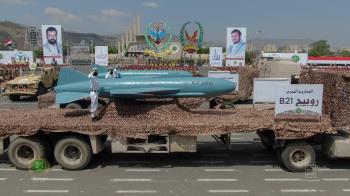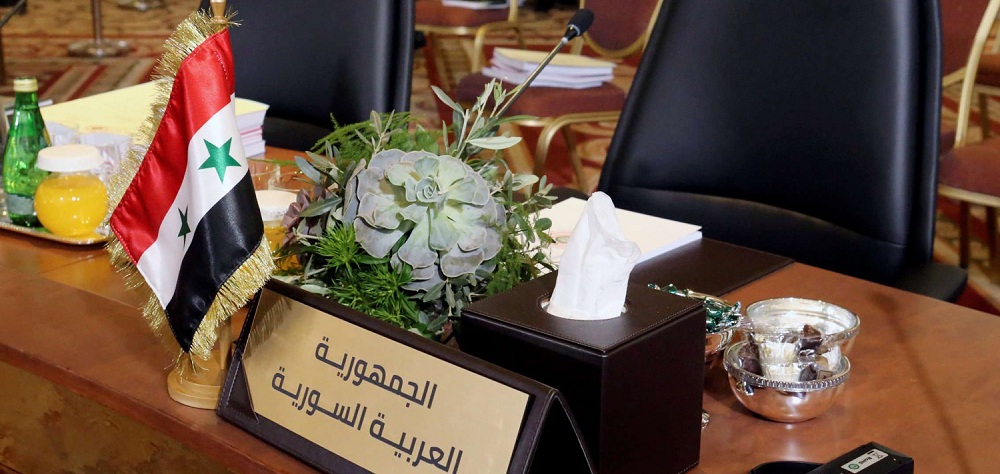Alwaght- The Arab countries, dictated by the West, suspended in 2012 Syria from Arab League and gave Damascus' seat to the armed rebels, hoping that the Syrian government will not stay long and fall a few months later. After a decade, they are changing their thoughts and making moves to bring back to the Arab bloc the government of President Bashar al-Assad.
The Algerian Foreign Ministry recently announced that the country will again raise Syria's request to participate in the upcoming meeting of Arab heads of state in September in Cairo. Algeria, which holds the rotating presidency of the Arab League, is trying to bring Syria back to the Arab League through persuasion of the Arab leaders. Algeria's foreign minister has traveled to Damascus to make the necessary arrangements with the Syrian authorities, including President al-Assad. Earlier, Algeria's FM Ramtane Lamamra had noted that his country will spare no efforts to unite and strengthen the Arab countries' "common will" to face collective challenges.
Advocacy to Syria return to the Arab League began to find its way to the Arab political circles since Damascus, assisted by its allies, defeated foreign-backed terrorist groups and recaptured much of the territories it lost to terrorist militias after the crisis erupted in 2011. Many of the Arab countries that learned about the grim plans of the US for Syria and for the region began to voice support for the Syrian return.
For the first time in March 2019, an Iraqi lawmaker talked about his country and some other countries' efforts to lift Syria suspension. A couple of months later, the time's President of Tunisia Beji Caid Essebsi during Lebanon donation conference raised the possibility of inviting Assad to Arab League summit. Although at the time many of Arab states did not welcome the idea, over time many of them requested Syria invitation and now they are calling for its return.
No serious obstacles to Syria return
Many countries of the bloc approve of Syria return but there are some trivial differences. The deputy secretary-general of the Arab League, noting that there is still no full consensus on the return, said that there is no specific time set for the process of return. The Arab League official continued that there are many views and comments about the issue by the countries that are off the consensus and each side has its own ideas.
With these in mind, it seems that there are no serious differences among the Arabs over Syria and it is just a matter of time. After all, normalization with Damascus has already started with economic deals and this signals that many Arabs states welcome Syria back. Even countries like the UAE, which along with Saudi Arabia were the biggest supporters of terrorists in Syria, changed their position towards the Syrian government before than others and reopened their embassies in Damascus a couple of years ago.
With the US insisting on its past positions towards the Syrian government and is against the normalization of Arab relations with Damascus, following the policies of Washington and the Israeli regime in the past decade has caused the Arab League to lose its position as an independent Arab institution. Although under the American and Israeli duress the Syria return may not get adequate favor, this issue will not affect the process of reviving bilateral relations between the Arab countries and Syria and will only tarnish the credibility of the Arab League in the world for its kneeling before Washington demands and plans.
Syria's successful experience
Upon eruption of Syria crisis, the Arab countries thought that Syrian government will fall within months and the opposition will take the power. But this was just miscalculation. Due to its successful transition from the crisis which is unprecedented in a century, Syria proved that it has great potentials to deal with big challenges and now has honed its skills in the fight against terrorists and return to the Arab League can enhance this bloc's role and position and the member states can use Damascus experiences in critical conditions. The successes of Damascus in overcoming the crisis caused some countries to reach out to the Syrian government. The Arab regimes in the Persian Gulf, which do not even have an independent army, resort to US and other Western countries for help to deal with minor internal crises but the Syrian government and nation stood strong against the united front of foreign enemies and groups and did not allow even an inch of their territory be split. Now Syria emerges stronger from the devastating war and this is forcing the Arab states to review their stated policies.
Set for less than two months from now in Egypt, the Arab League conference can pave the way for Syria return and enhance its image internationally given Syria's record and role in the Arab world. With Damascus on board, the bloc can make effective regional decisions including fighting against terrorism and backing the push for Palestine liberation.



























